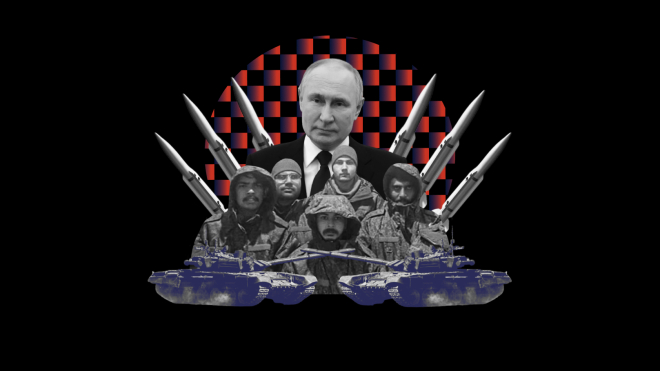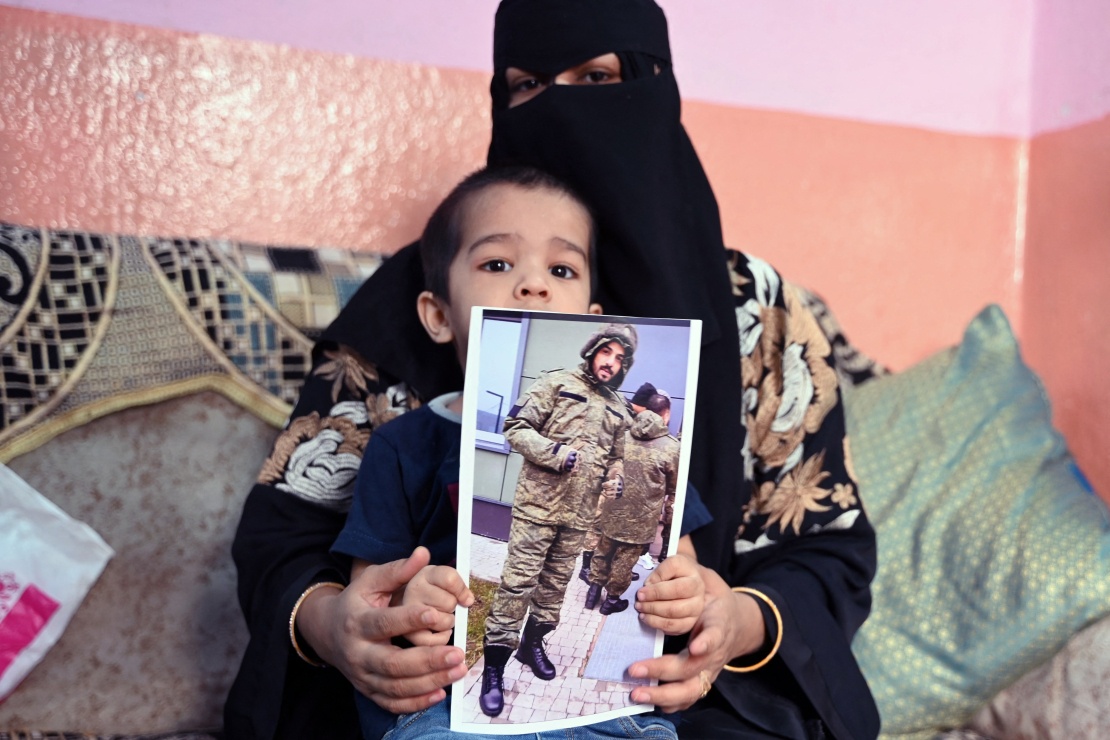Promoters and recruiters work in social networks. Like Indian blogger Faisal Khanʼs Baba Vlogs YouTube channel with over 300,000 subscribers. In one of his videos, he advertised the work of a military assistant in Russia. Khan stated that in this position, wage earners will be guaranteed to be in the rear and in safety, will receive a high salary and a residence permit in Russia. The recruiter told British journalists that he sent 26 Indians to Russia and only later realized that the Russian intermediary "misled him about the nature of the work."
Earners meet agents on the Internet, pay them a large fee and buy tickets for an expensive flight. Because of this, they accumulate thousands of dollars in debt. Recruiters verbally guarantee security, so foreigners who have already lost a large amount of money agree to sign a contract. And those who still refuse have their passports taken away and forced to sign a contract. Not knowing the Russian language, foreigners only later find out that they signed up for a year of service in the armed forces. The only way to avoid this is prison.
Some wage earners are tricked into being brought to Moscow. For example, Nepalese Nandaram Poon responded to a vacancy in Germany and flew to Russia for a transit stop. He was picked up at the airport and taken to a military training camp, where he was taught how to use weapons. And then sent to the front.
Belarusian border guards are also a kind of recruiters, but for tourists. For example, they detained and handed over to the Russians a company of Indians who celebrated the New Year in Russia and then tried to cross the border with Belarus. According to the foreigners, their escort suggested they go to a neighboring country. When they were stopped because they did not have a visa, he promised to fix everything, took more money and disappeared. The young men were forced to sign contracts and sent to war in Ukraine.
Indian Gurpreet Singh, who also celebrated the New Year in Russia, and then tried to get to Belarus without a visa, found himself in a similar situation. The Russians threatened him with ten years in prison, took away his phone, personal belongings, and locked him up in an isolation cell. After a few hours, he was allowed to speak on the phone with an interpreter. He explained to Singh that he should join the Russian army so as not to "rot in prison." He was promised a job in Moscow with a salary of one hundred thousand rubles, but in two days he was sent to military training, and then to the front.
Indian woman Asma Shirin holds a photo of her husband Mohammed Asfan, who was recruited by agents to join the war in Ukraine. The last time he communicated was in Rostov-on-Don, before going to the front line.
Getty Images / «Babel'»
One of the training centers for foreigners is located in the "Avangard" military-patriotic youth camp in the Moscow region. Recruits are shown how to shoot and provide first aid. They explain everything in Russian, which most foreigners do not understand. Training usually lasts no more than two weeks, after which most of the "military" are sent to the front, and the rest are transferred to other training centers.
Most foreigners fight together with Russians, not in separate units. They wear different identification marks — the Russian tricolor, the flag of the so-called "DNR" or the logo of the "PVK Wagner". Foreigners do not understand commands in Russian, and Russians on the battlefield do not help them in any way, doctors usually leave them to die.
It is not known how many foreigners are participating in the war on the side of Russia. The Nepalese government believes that more than 200 of their nationals are at the front. Local media write that the government greatly underestimates this figure, because there may be at least 5,000 Nepalese in Ukraine.
According to official data, 12 Nepalese died in the war, five were captured. But it is not known how many of them went missing or remained lying on the battlefield. The bodies of the dead are not returned, so families cannot cremate their relatives. According to custom, they have to burn the body on the river bank and throw the ashes into it so that the soul can be freed and reborn. With no hope of returning the dead men, the Nepalese light empty fires.
According to the spokesman of the Ministry of Foreign Affairs of Nepal, Amrit Bahadur Rai, 245 families are already demanding that their relatives be rescued from the Russian army. In January 2024, Foreign Minister Narayan Kaji Shrestha appealed to Russia to stop recruiting Nepalis into the army.
The government of Nepal has also banned its citizens from traveling to Russia or Ukraine to earn money. Several agents who were transporting men to the war were arrested. Twelve recruiters worked in one of these groups, who managed to ferry about 200 men to the war, having previously charged them $9,000 each for a tourist visa. But underground human trafficking networks are difficult to eliminate, so the flow of Nepalis and other foreigners to the Russian-Ukrainian war is unlikely to stop.
Nepalese protest near the Russian embassy in Kathmandu (the capital of Nepal). They demand that the men and the bodies of the dead be returned home.
Getty Images / «Babel'»
Foreigners pay thousands of dollars to get a job. We offer a better investment, support Babel: 🔸 in hryvnia , 🔸 Buy Me a Coffee , 🔸 Patreon , 🔸 PayPal: [email protected].

